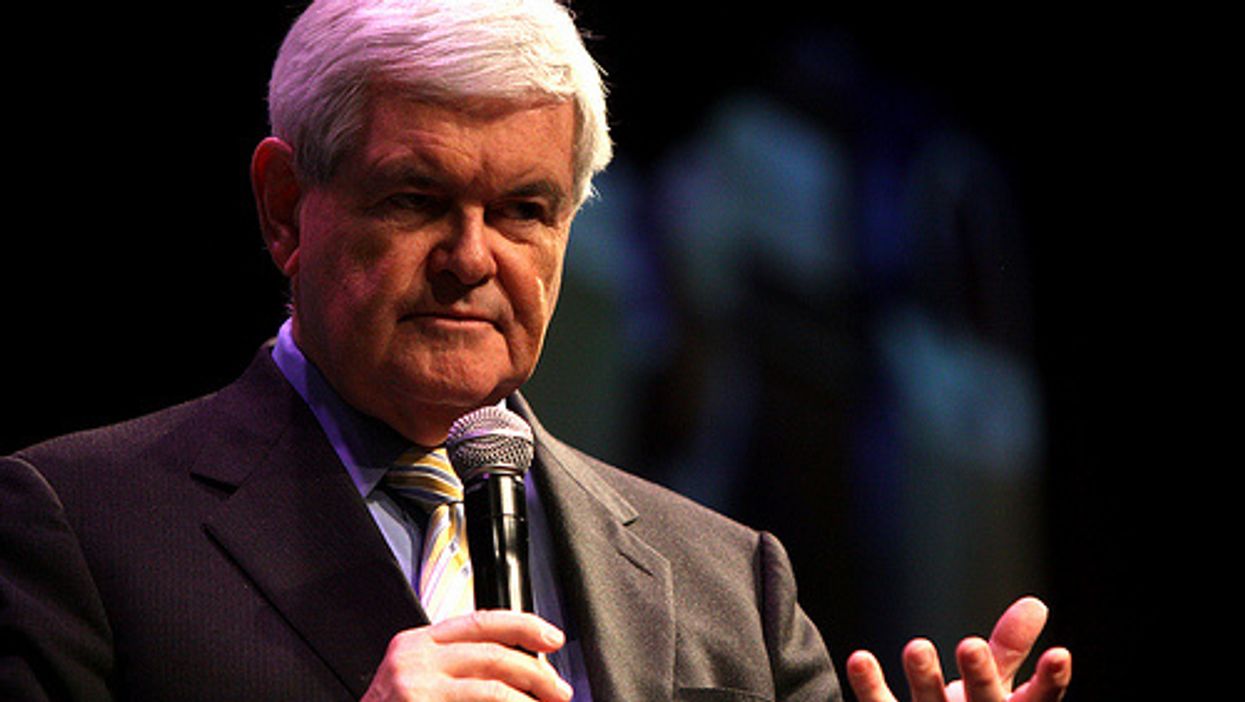
Newt Gingrich
With the passing of a year since the attempted coup and insurrection of January 2021, the question that remains unanswered for many Americans is how our country came to its current peril. Why is the nation now confronting such an extraordinary degree of polarization, so many threats to democracy, and the prospect of partisan violence or even civil war? The obvious answer is to pin these woes on Donald Trump alone, who certainly deserves plenty of blame. But that would be wrong.
The former president, whose fascistic tendency was identified in this space when he first announced his presidential candidacy in 2015, didn't suddenly appear from nowhere. Trump was and is the expression of an authoritarian and malevolent spirit that has gained increasing influence within the Republican Party over the past three decades. Although the Nixon administration's antidemocratic excesses were an early warning, the first sign that this would become an irreversible trend could be seen in the rise of Newt Gingrich — now one of Trump's most implacable and aggressive attack dogs.
When Gingrich came to power in the House of Representatives in the early '90s, he first overthrew the old-line Republicans whose worldview permitted cooperation and compromise with Democrats for the nation's good. Nobody in Republican leadership before Gingrich would ever have considered something like defaulting on the national debt — a dishonorable and extremely dangerous tactic — for partisan advantage.
But to Gingrich, such extremist maneuvers were entirely justified by his ultra-right ideology, which depicted Democrats not as political competitors but as blood enemies. To advance that ideology within the GOP he created an organization called GOPAC, which taught right-wing candidates how to deploy a lexicon of slurs describing their Democratic opponents, and liberals more generally, as "sick," "pathetic," "radical," "socialist" and "traitors," among a long list of other insults. His smear campaign bore a distinct resemblance to the Gothic horror mythology of the QAnon cult — as when he blamed a mother's murder of her two children on the Democratic Party. (Actually, she turned out to be the daughter of a "Christian" Republican leader who had sexually abused her.)
It was an extraordinarily destructive and even nihilistic approach to politics, but it worked. As longtime Trump adviser Roger Stone has gleefully noted so many times, hate is the most powerful motivator in politics — and by harnessing hate, the Gingrich Republicans gained control of Congress in 1994, and never looked back.
From that day until today, the Republican attitude toward governance has veered between authoritarian and insurrectionary. It's authoritarian when a Republican occupies the White House, as we observed when the George W. Bush administration declared the "unitary presidency" with unlimited powers during time of war, specifically the war on terror. And it's insurrectionary when a Democratic president is in power, as we saw when Sen. Mitch McConnell (R-KY) announced that his only purpose was to deny Barack Obama a second term.
No rules or customs that had applied under Bush would be available to Obama, and any underhanded tactic would be employed to regain power. The usual courtesies and decencies were abandoned, as we know from decades of experience. Even respect for wartime service went down the drain, as Republican draft dodgers spit on the decorations of Democratic war heroes like John Kerry and the late Max Cleland. So Trump felt free to mock the sacrifice of the late John McCain and other veterans. This is the legacy of Gingrich and of Karl Rove, the Bush White House political mastermind who conceived a political system so thoroughly controlled by the Republican Party — by whatever means necessary — as to render all opposition merely symbolic.
Indeed, many of the Trumpian tropes that make most Americans retch can be traced back to that earlier era of disgrace. When Trump's evangelical followers proclaim that he was chosen by God to rule, they are merely parroting what they once told us about George W. Bush (whom they now despise). The Republicans and their echoes in media and the pulpit are purveyors of propaganda, without shame or scruple.
Yes, Trump and his minions represent a clear and present danger to democracy, but they didn't emerge from nowhere. Their brand of cancer has been growing in the Republican Party for a generation or more — and with all due respect to brave dissenters like Rep. Liz Cheney (R-WY), it will not be excised merely by defeating him.
To find out more about Joe Conason and read features by other Creators Syndicate writers and cartoonists, visit the Creators Syndicate website at www.creators.com.
- Trump Warned His Tweets Inciting Insurrection Were 'Illegal ... ›
- Riot Shields Are A Reminder Of Trump's Insurrection - National ... ›
- How Republicans Learned To Stop Worrying And Love January 6 ... ›
- Michigan GOP Official And School Board Member Guilty Of Malicious Threatening - National Memo ›
- Liz Cheney Calls Out McCarthy For His Refusal To Testify - National Memo ›
- Gingrich Threatens Select Committee Members With ‘Jail’ - National Memo ›








